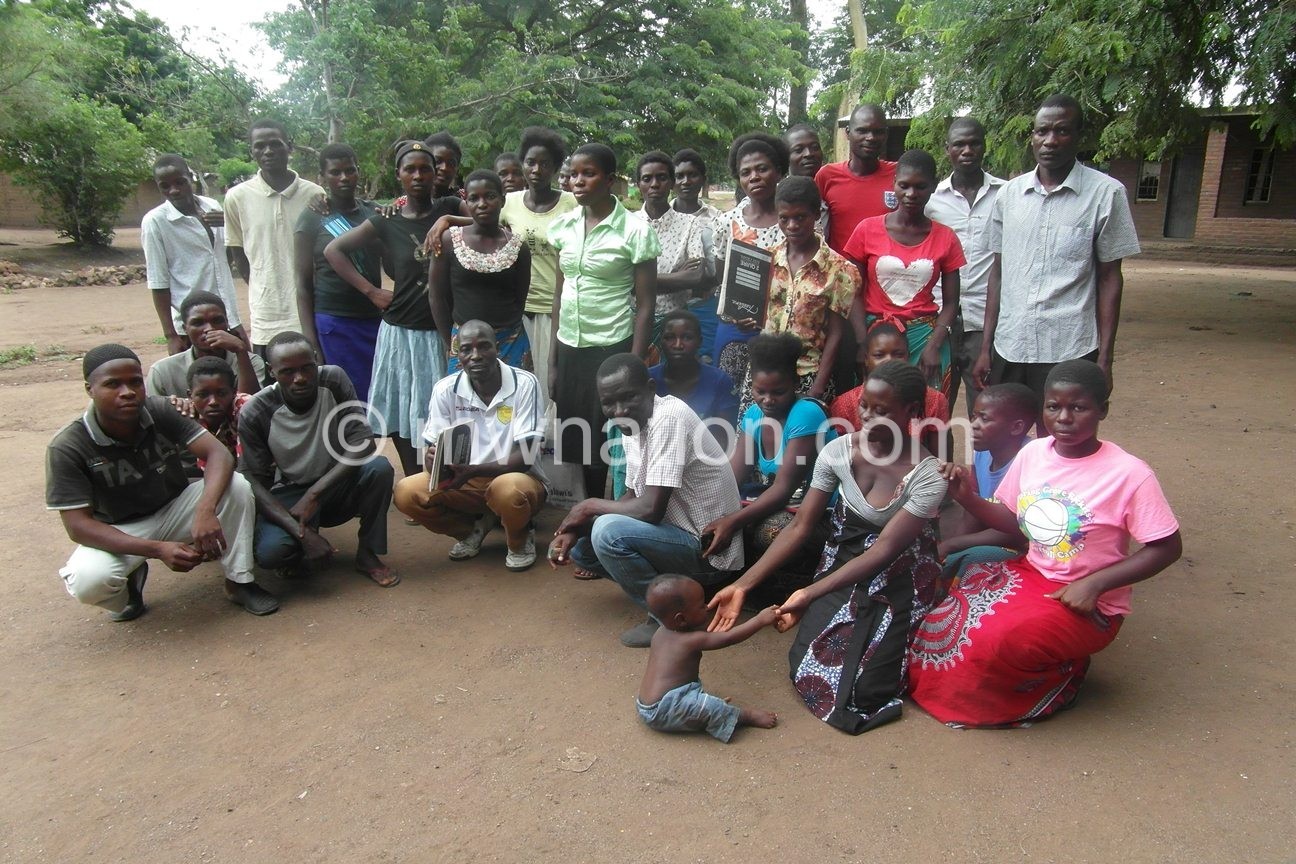Girls saving schoolgirls
Their experiences are similar. They are all teen mothers. They dropped out of school after falling pregnant, got married and were dumped by their youthful spouses.
Now they are on a mission to save girls from taking the path they have trodden in agony.

Their situation is not unique. Studies by National Statistical Office and United Nations Population Fund (UNFPA) show that nearly half of women in Malawi marry before their 18th birthday—the legal marriageable age.
Martha Misoya, Dorothy Joseph, Felista Jani and Jennifer Moses want an end to this trend.
The four girls, who terminated their marriages and returned to school, have joined the global push to ensure that every girl remains in school until they achieve their potential.
They have vowed to fight an array of distraction to girl child education in their remote setting in Traditional Authority (T/A) Masache in Chikwawa.
With their limited resources, they travel from village to village in the countryside, narrating their stories to show girls the ills of teen pregnancies and child marriages as well as the importance of education.
“Teen pregnancy is the worst nightmare no young girl should go through,” says Misoya, who fell pregnant in 2015.
She was in Form Three. After two years at home as a mother, she is back in school.
Like her three collegues, she wants every girl to learn.
They are among numerous girls who have re-enrolled, thanks to Adolescent for Action Development (AGYD) programme run by World Vision Malawi (WVM).
Through their experiences, the four are now committed to saving fellow schoolgirls from falling into the twin trap of child marriage which forces adolescents to quit school.
“Marriage was the most terrible chapter of my life. No girl should go through what I went through. Education is the only key for a woman’s independence,” says Joseph.
Working hand in hand with youth clubs, the girls visit communities, households and schools encouraging girls to focus on their education.
“We use peer-to-peer interactions and testimonies in engaging the girls,” says Jani.
She dropped out just after being selected to Phanda Community Day Secondary in Chikwawa, but now she is back in Form Four.
Moses is the leader of this movement in which teen mothers have become role models.
She says their intervention tackles a diversity of issues that pose challenges to girl education.
“Apart from urging girls to return to school, we also speak against harmful cultural practices that perpetrate violations of girls’ rights, including education attainment.
“Here in Chikwawa, many parents force young girls into marriage for their own benefit. We want to stop it,” says Moses.
According to her, their advocacy targets more than just girls.
They also engage other relevant stakeholders, including parents, traditional leaders and teachers.
Many community members commend the girls’ efforts.
“These girls are doing us proud. They are encouraging and inspiring other girls to rise up and shape their destiny,” says Chikwawa district youth officer Chigonjetso Chiromo.
According to the Department of Youth, Chikwawa has about 375 000 youths, but few are said to be in school,.
“The situation is worse for girls who are usually forced into marriage by their parents. We commend World Vision for the programme that has given the youth, particularly girls, the power and courage to go back to school and to speak out about their rights and experiences,” says Chiromo..
World Vision technical programmes manager for education Florence Pwele says the initiative strives to ensure that the youth enjoy their rights.
“We want to empower adolescents, especially girls who drop out of school because of marriages and teen pregnancies, to have a second chance in life,” she says.
AGYD, funded by Unicef, also includes initiatives to boost early childhood development (ECD), entrepreneurship and literacy.
The four girls are part of a youth-focused model which empowers the youth to rise up and engage in activities that can shape their destiny positively.
World Vision is impressed with what the girls are doing and will provide them with means of transport so that they reach more girls, says Pwele
“Their activism has helped track many sexually abused girls and linked them to child protection office. We want such good work to reach out beyond their rural communities,” she says.
Ministry of Education, Science and Technology spokesperson Lindiwe Chide says government recognises the important role the girls are playing to break the vicious cycle that eject girls from school.
“We wish the nation had more of these girls to inspire others. We would have more girls in schools pursuing their dream careers,” she says.
The four advocates from Chikwawa feel they are duty-bound to protect young people, especially girls, from rights violations.
According to Misoya, they are determined to expand their mission to the rest of the country.
“It is not only the girl child in Chikwawa facing these challenges. There are many more across the country and we want to reach them too. We are hopeful that in the near future, this will be done,” she says.





